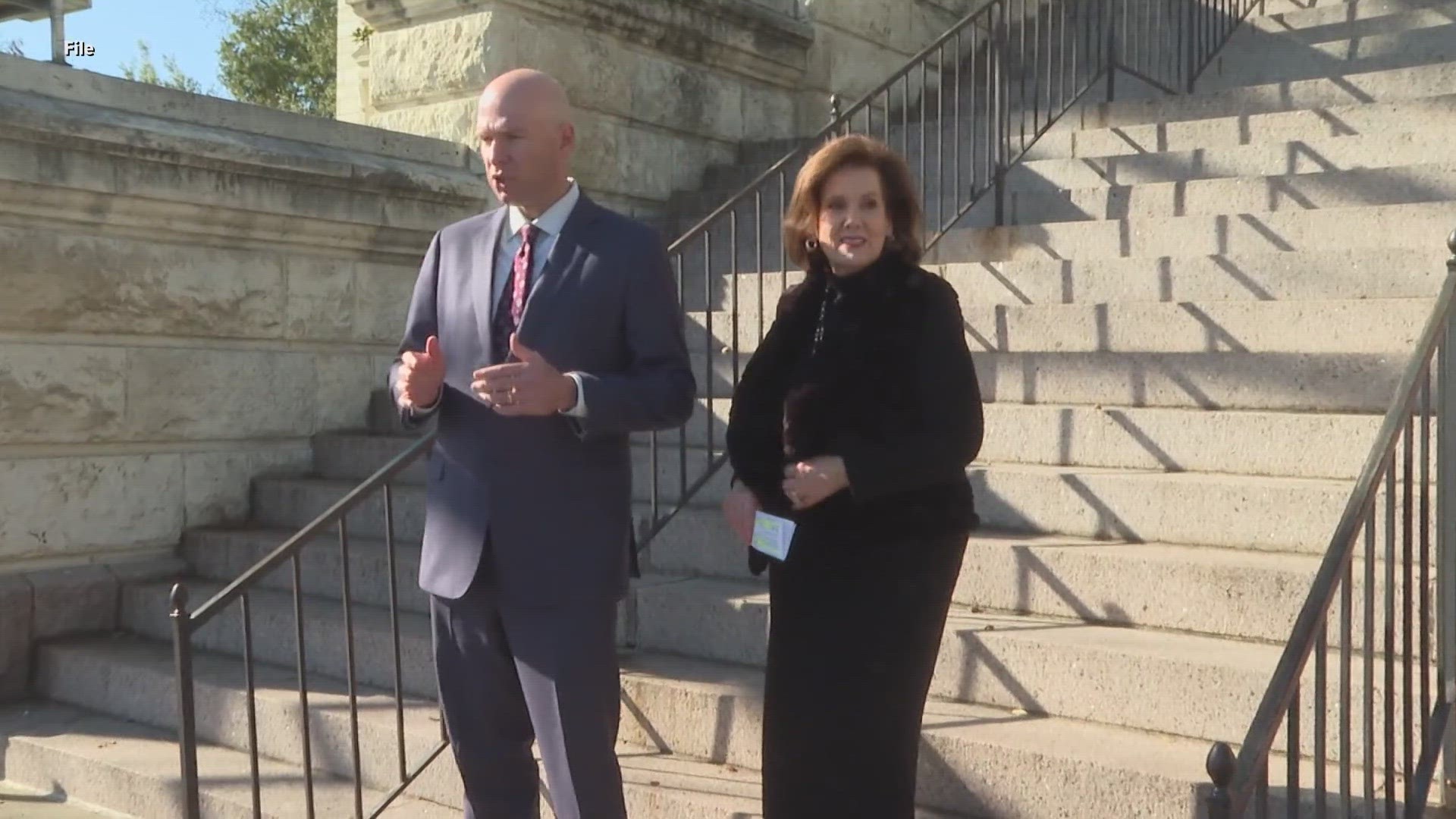WACO, Texas — The Texas Supreme Court recently ruled that a McLennan County Justice of the Peace can sue the State Commission on Judicial Conduct (SCJC) over a sanction from the Commission based on her refusal to marry same-sex couples.
The SCJC issued a public warning against McLennan County Justice of the Peace Dianne Hensley in 2019 after she refused to marry same-sex couples, saying that it would be "inconsistent with her religious faith", court documents show. Hensley would reportedly instead refer couples to justices who would perform the marriages for the same low cost.
The Commission said Hensley's decision cast doubt on her "capacity to act impartially" as a judge. In response to the disciplinary action, Hensley reportedly stopped performing all marriages altogether.
Hensley sued the Commission and its members and officers in December 2019 in district court under the Texas Religious Freedom Restoration Act (TRFRA), which states “a government agency may not substantially burden a person’s free exercise of religion", according to court documents.
According to the Texas Supreme Court, a person who successfully establishes a TRFRA violation is entitled to recover declaratory relief, injunctive relief to prevent future violations and compensatory damages not to exceed $10,000, as well as attorney’s fees and other expenses incurred in bringing the action.
Hensley claimed that the Commission violated TRFRA by investigating, warning and threatening future discipline against her if she continued to refuse to perform same-sex marriages. She sued for "damages for her lost income in not being able to perform opposite-sex weddings, declaratory relief under TRFRA and injunctive relief prohibiting the Commission from further sanctioning her speech and conduct," said court documents.
Hensley also reportedly sought several declarations under the Uniform Declaratory Judgments Act (UDJA) against both the Commission and the commissioners, such as that the Commission’s interpretation and application of Canon 4A violates the Free Speech Clause; the officiating of weddings is not a judicial ‘duty’ and her referral system does not violate Texas Constitution.
Hensley also argued that the commissioners acted "ultra vires", or outside of their own powers, and therefore were not protected by sovereign immunity.
The SCJC filed a plea to the jurisdiction arguing that Hensley’s claims "are an impermissible collateral attack on the Public Warning barred by her failure to exhaust her administrative remedies by not appealing it to the SCR—the exclusive forum provided by the Legislature for appeals from Commission warnings".
The Commission also argued Hensley's claims are barred by sovereign immunity because she failed to comply with TRFRA's notice requirement, the Commission has special immunity and the ultra vires doctrine "does not negate immunity because the commissioners’ actions were all discretionary and authorized".
The trial court agreed with the Commission and dismissed Hensley’s case, according to court documents. The court of appeals affirmed the trial court's ruling to dismiss, and the Texas Supreme Court later granted Hensley’s petition for review.
In their ruling, the state Supreme Court disagreed with the lower court's ruling that Hensley's suit was an "attack on the public warning" because she had not gone through an internal appeals process.
The Texas Supreme Court also ruled Hensley’s claims of a burden to her religious freedom is "clearly sufficient" under TRFRA, but the Commission's sovereign immunity is not waived for her request for a declaration.
The Texas Supreme Court concluded that it affirmed the part of the court of appeal's judgement dismissing Hensley's requested declaratory relief against the Commission concerning the Free Speech Clause for lack of jurisdiction, but reversed the remainder of the judgment, remanding the case to the court of appeals for consideration of the unaddressed issues remaining.
The ruling means that Hensley has standing to sue the SCJC for issuing the public warning against her, and the Commission's sovereign immunity claims don't apply in this case.
The case will now return to a court of appeals to try address the religious freedom aspects of the case.
The full Supreme Court ruling can be read at this link.
More from 6 News:

